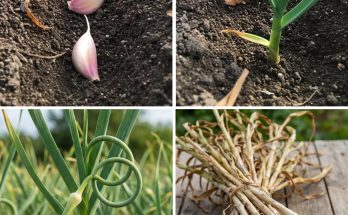Dreaming of rich, glossy eggplants fresh from your own garden? Whether you’re a backyard gardener or growing in containers, here’s how to cultivate eggplants like a pro—from seed to harvest!
Pick the Perfect Variety
Start smart by choosing eggplant varieties that thrive in your climate. Compact types like ‘Patio Baby’ are great for containers, while larger varieties need more space.
Start Indoors from Seed
Sow seeds indoors 8–10 weeks before your last expected frost. Keep them warm (around 75–85°F) for faster germination.
Prep the Soil Like a Pro
Eggplants love rich, well-draining soil with a pH between 5.5 and 7. Mix in compost or aged manure for a nutrient boost.
Time Your Transplant Right
Transplant seedlings outdoors after the final frost and once they’ve been hardened off. Wait until the soil is consistently warm (above 60°F).
Give Them Sun & Space
Plant in a spot with full sun—at least 6–8 hours daily. Space plants about 18–24 inches apart to ensure good airflow.
Water Well, Mulch Better
Eggplants need consistent moisture. Water deeply and regularly, and add mulch to help retain moisture and regulate soil temperature.
Support & Prune for Stronger Plants
Use stakes or cages to support heavy branches. Prune lower leaves and non-fruiting branches to direct energy to the fruit.
Stay Ahead of Pests
Watch for flea beetles, aphids, and spider mites. Use row covers early on, and apply neem oil or insecticidal soap if needed.
Feed for Maximum Flavor
Fertilize with a balanced 10-10-10 or similar formula. Once flowers appear, reduce nitrogen to encourage fruit production over foliage.
Harvest at the Right Time
Pick eggplants when they’re glossy and 4–6 inches long (size may vary by variety). Don’t wait too long—they get bitter when overripe. Use a knife or shears to avoid damaging the plant.
Bonus Tip: Cook them soon after harvest for the best texture and flavor—perfect for grilling, roasting, or your favorite eggplant Parmesan recipe!



